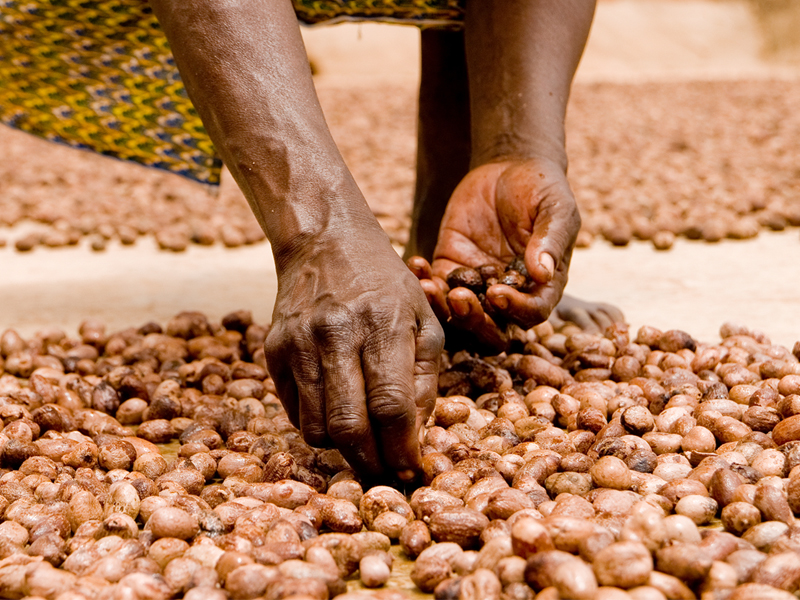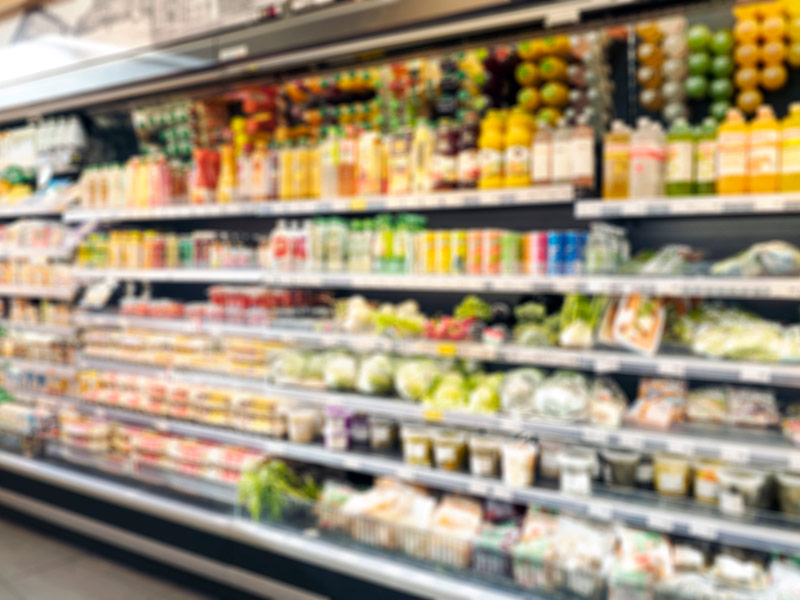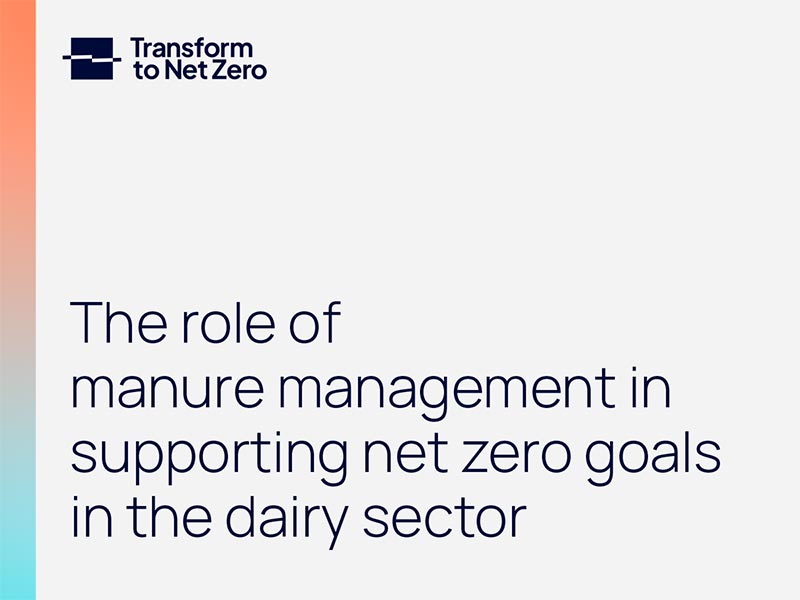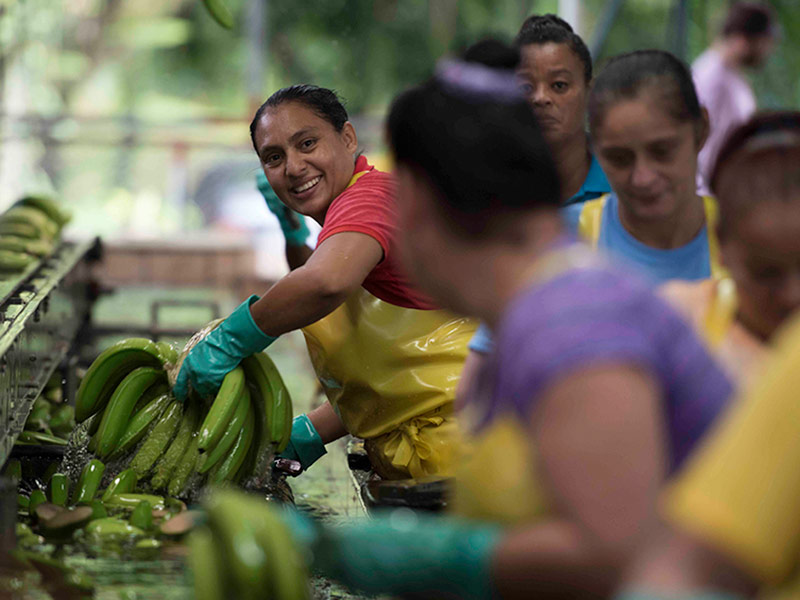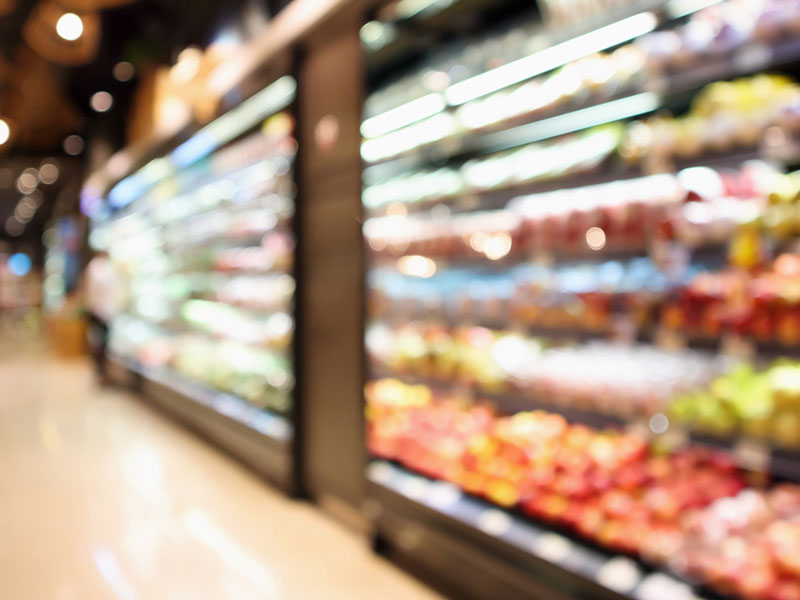
Authors
-
Jorgette Mariñez
Former Managing Director, Advisory Services, BSR
-
Denielle Harrison
Former Manager, BSR
Today, I came home to a barren refrigerator—for many, the calling card of a bachelor living on takeout and dinner dates. But in my house, it’s the sign that we’re cutting food waste: I’ve challenged my family to eat everything in our refrigerator, and I mean everything. But that’s not the typical U.S. household … yet.
If you grew up in the United States during the middle of the 20th century, you very quickly learned the American social code around food—fresh cooked food every day meant mom (always mom) cared, a party of 15 meant you cooked for 30 for fear of running out, and an empty refrigerator was considered cause for embarrassment. While grandma or mom, who survived the Great Depression, took extra time getting her doggie bag after dinner at the local restaurant, the rest of us didn’t risk the faux pas.
Food abundance was, and still is, considered a sign of wealth, love, and social capital. But what’s the impact of all that abundance if it’s under-used?
U.S. consumers produce an estimated 27 million tons of food waste annually. Wasted food, left to sit and decompose in landfills, emits methane, which is a leading cause of climate change. That waste also presents a critical social problem, where food is thrown away instead of going to the 40 plus million people in the United States struggling to feed their households.
Of course, there’s even more food thrown away long before it gets to our homes. Another 25 million tons of food are wasted by consumer-facing businesses, 1 million by manufacturers, and another 10 million lost on farms—for a grand total of 63 million tons, equaling an estimated US$218 billion.
The good news is that the food waste landscape is improving. The past two years have seen an increased focus on food waste, ranging from individual business commitments to collaborative commitments, such as YieldWise by the Rockefeller Foundation to reduce global food loss and waste, the Consumer Goods Forum Food Waste Resolution, and the U.S. government pledging to cut food waste by half by 2030. Some commitments were inspired by the UN Sustainable Development Goals—Target 12.3 calls for a 50 percent reduction of global food waste by 2030.
However, most efforts exclude consumers, who in the United States are responsible for 43 percent of the food wasted per year. But there are some examples of successful attempts. For example, in April 2016, the National Resources Defense Council partnered with the Ad Council on a “Save the Food” campaign, which encourages consumers to alter their behavior. The campaign is a step toward raising public awareness—and there is a clear opportunity for companies and organizations to capitalize on the momentum and broaden the impact of these types of efforts.
This past February, BSR, with support from The Rockefeller Foundation, challenged 15 participants from companies and civil society organizations to consider what it would take to engage consumers on food waste prevention in the United States.
Throughout a day of case studies, new research on messaging to drive sustainable behaviors, and a group activity leveraging the BSR/Futerra Sustainable Lifestyles Frontier Group framework on developing the value proposition for sustainable behaviors, the group identified three areas where collaboration could help to create a movement around food waste reduction:
- Developing a business case for engaging the broader business and integrating sustainability and marketing efforts to address consumer food waste
- Testing and refining consumer messaging through creative media to drive food waste reduction
- Partnering on local/community-based events to highlight and encourage better practices around food purchasing and use, particularly with children and families
Individual organizations can execute against these tasks, but the real opportunities are in the shared investments, resources, and outcomes that can come through a collaborative effort. BSR will continue to address this complex issue by engaging companies and brands in a proposed collaborative initiative to address the three areas outlined above.
Influencing, and ultimately changing an individual’s perceptions of the value of food and his or her subsequent consumption behaviors is complex and challenging. We hope this important work will shift social norms around food waste in the United States—our vision is that emptier refrigerators and leftover consumption become a badge of social awareness, respect for the environment, and with hope, delicious meals.
If you are interested in joining a collaborative initiative to engage U.S. consumers on food waste, please contact jmarinez@bsr.org.
BSR’s latest sustainability insights and events straight to your inbox.
Topics
Let’s talk about how BSR can help you to transform your business and achieve your sustainability goals.


